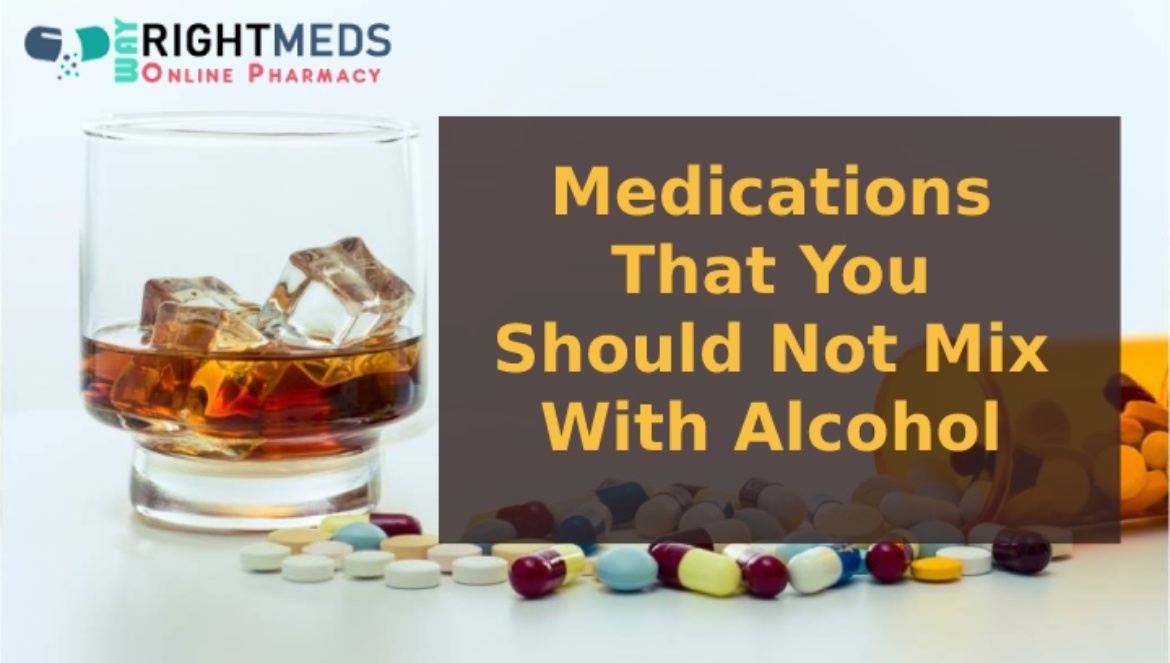Medications That You Should Not Mix With Alcohol

Page Contents
Doctors often come across the question, “Can I drink alcohol with this drug?” This question is of great significance to people, especially in the United States, as almost 55% of people regularly take some prescription medication. Around 30% of all Americans drink at least one alcoholic drink every day. Can I drink alcohol with this drug? Doctors often come across the question, “Can I drink alcohol with this drug?”.
This question is of great significance to people, especially in the United States, as almost 55% of people regularly take some prescription medication. Around 30% of all Americans drink at least one alcoholic drink every day.
Though drinking a moderate amount of alcohol, i.e., less than one drink a day, might have some heart health benefits, consuming alcohol with medications poses a severe risk that nullifies any benefits that it may have.
When you mix medicines with alcohol, it may result in one of the following interactions:
- You may feel drunker if you take some medication and drink at the same time.
- Alcohol reacting with medicine can cause new symptoms to appear and make you feel too ill.
- It can worsen the severe side effects of the treatment.
- The medication can become toxic for the body if you consume it with alcohol.
- Alcohol can also lessen the impact of the drug on your body.
Females should remain extra careful while consuming alcohol and medicines, as they can have higher blood alcohol levels than men even when drinking the same amount. So, mixing medicine with alcohol can be riskier because they have lower levels of the enzyme that helps break down alcohol in the body known as alcohol dehydrogenase.
Mixing alcohol with medicines can also be extremely dangerous for older people because the older you get, the longer it will take for your body to break down the alcohol. Older people can have higher alcohol levels in their blood even long after drinking, which, coupled with the fact that most older people are likely to take some medicine, results in increased chances of having a bad interaction.
The following are the medications that you should never consume alongside alcohol:
Painkillers
Drinking alcohol while taking naproxen (Naprosyn, Aleve) or ibuprofen (Motrin) can lead to upset stomach, ulcers, or stomach bleeding. Mixing alcohol with acetaminophen can also be hazardous, as both substances get broken down in the liver. When the liver is working on alcohol, it cannot process acetaminophen, which causes drug buildup in the body and might result in severe liver damage.
The opioid painkiller, like oxycodone or codeine, poses the most significant risk when mixed with alcohol. The interaction between opioids and alcohol can cause slowed breathing, excessive drowsiness, and even death.
Anti-Anxiety And Sleeping Tablets
Consuming alcohol with sleeping pills or anti-anxiety medications can cause some severe issues. You might feel exhausted or even fall unconscious if you mix these substances.
The following are the medicines that you should not take with alcohol:
- Klonopin (clonazepam)
- Valium (Diazepam)
- Xanax (Alprazolam)
- Ativan (Lorazepam)
Anti-Depressants
Anit-depression medications can cause severe health problems if mixed with alcohol. The amount of damage they incur differs based on the particular medicine you are taking, but all the anti-depressants can cause the following symptoms if you mix them with alcohol:
- Dizziness
- Drowsiness
- Liver damage
- Problems with movement
- Overdosing
- Severe heart problems
Specific mood stabilizers, including Divalproex and lithium, can also cause severe side effects when mixed with alcohol.
ADHD Medicines
ADHD medications, including Ritalin, Adderall, and Vyvanse, can adversely interact with alcohol. This interaction can result in the following severe side effects:
- Liver damage
- Heart problems
- Poor concentration
- Drowsiness
- Dizziness
Antibiotics
Drinking alcoholic beverages with metronidazole (a common antibiotic) can result in violent vomiting and nausea. Antibiotics like nitrofurantoin, azithromycin, and isoniazid can also cause uncomfortable effects when mixed with alcohol.
Nitrates And Other Blood Pressure Medicines
Various blood pressure medications and nitrates or anti-angina drugs can dangerously interact with alcohol. This interaction can cause a person to experience the following effects:
- Drowsiness
- Fainting
- A faster heartbeat or arrhythmias
- Dizziness
Diabetes Drugs
People consuming any diabetes medications can experience the following results when they drink alcohol:
- Sudden changes in blood pressure
- Rapid heartbeat
- Headache
- Nausea and vomiting
- Flushing
- Deficient blood sugar levels
The popular diabetes medicines that can interact with alcohol include insulin, metformin, glyburide, and glipizide. Be cautious regarding drinking while taking these medicines.
Coumadin
Warfarin and alcohol combination can have some unpredictable effects on your body. If you drink alcohol while consuming this drug, you will require close monitoring at a medical facility to make sure that it has not made your blood too thin.
Over The Counter Cold And Flu Medications
Most of the cold and flu treatments that you get as over-the-counter medicines contain a mixture of different painkillers, decongestants, antihistamines, and some drugs like NyQuil even have alcohol. Try checking the ingredients on the packaging before consuming these medicines with alcohol. Negligence can make you encounter side effects like dizziness, drowsiness, and increase your risk of getting an overdose.
Erectile Dysfunction Drugs
When you consume alcohol with erectile dysfunction medicines like Viagra (sildenafil), Cialis (tadalafil), and Levitra (vardenafil), you expose yourself to the risk of facing significantly lower plod pressure that can cause headache, dizziness, flushing.
Conclusion
Mixing alcohol with medicines, either prescription or over-the-counter is a dangerous task that can yield some unpredictable results. The thing you can do to protect yourself from such harmful effects of combining alcohol with medicines is to avoid drinking. Try to wait until you can talk with a doctor or pharmacist to ensure that you won’t face any adverse effects if you drink alcohol with the drug. Taking caution can save you from facing severe, sometimes lasting health problems.

Leave a Reply